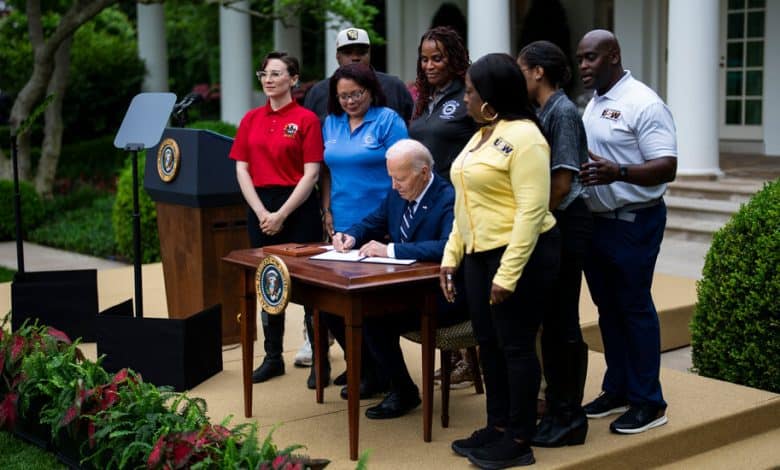Biden’s China Tariffs Are the End of an Era for Cheap Chinese Goods

For the first two decades of the 21st century, many consumer products on America’s store shelves got less expensive. A wave of imports from China and other emerging economies helped push down the cost of video games, T-shirts, dining tables, home appliances and more.
Those imports drove some American factories out of business, and they cost more than a million workers their jobs. Discount stores and online retailers, like Walmart and Amazon, flourished selling low-cost goods made overseas. But voters rebelled. Stung by shuttered factories, cratered industries and prolonged wage stagnation, Americans in 2016 elected a president who vowed to hit back at China on trade. Four years later, they elected another one.
In separate but overlapping efforts, former President Donald J. Trump and President Biden have sought to revive and protect American factories by making it more expensive to buy Chinese goods. They have taxed imports in legacy industries that were hollowed out over the last quarter-century, like clothes and appliances, and newer ones that are struggling to grow amid global competition with China, like solar panels.
Mr. Biden’s decision on Tuesday to codify and escalate tariffs imposed by Mr. Trump made clear that the United States has closed out a decades-long era that embraced trade with China and prized the gains of lower-cost products over the loss of geographically concentrated manufacturing jobs. A single tariff rate embodies that closure: a 100 percent tax on Chinese electric vehicles, which start at less than $10,000 each and have surged into showrooms around the world, but have struggled to crack government barriers to the U.S. market.
Democrats and Republicans once joined forces to engage economically with Beijing, driven by a theory that America would benefit from outsourcing production to countries that could manufacture certain goods more cheaply, in part by paying their workers low wages. Economists knew some American workers would lose their jobs, but they said the economy would gain overall by offering consumers low-cost goods and freeing up companies to invest in higher-value industries where the United States had an innovation advantage.
The parties are now competing to sever those ties. Lawmakers have taken increasingly hard lines on China’s labor practices, intellectual property theft from foreign businesses and generous subsidies for factories that produce far more than Chinese consumers can buy.
